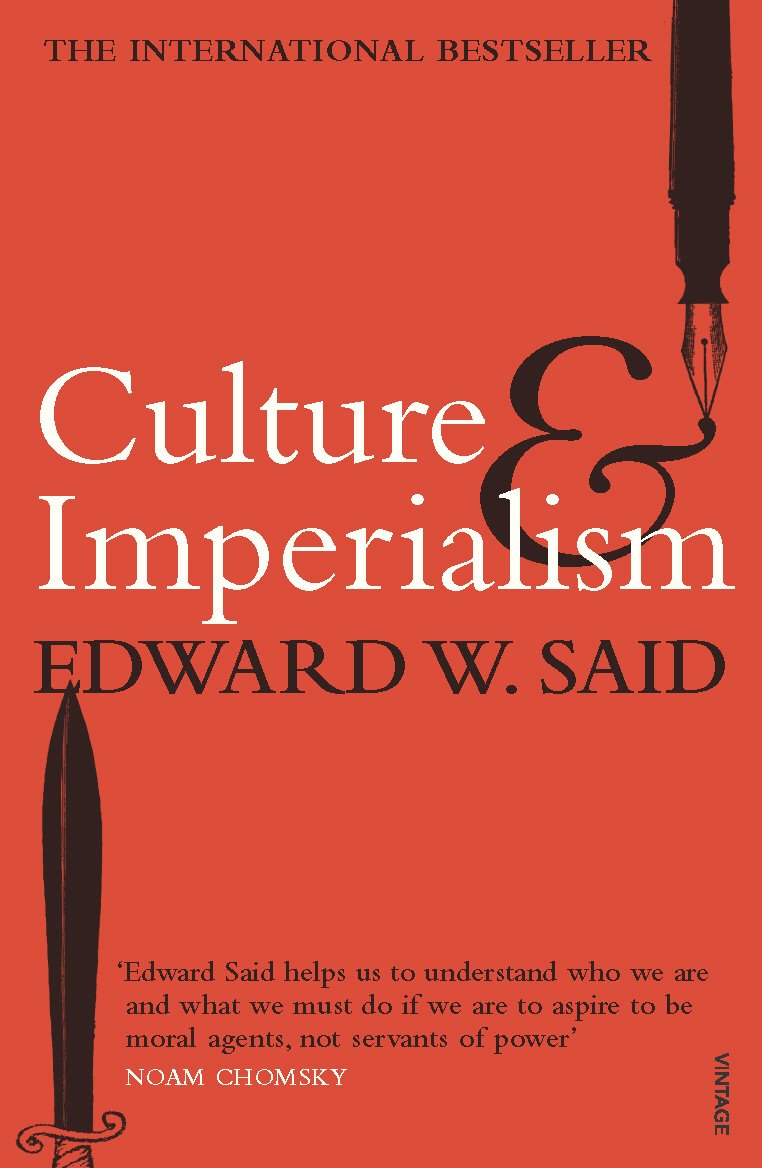Culture and Imperialism
- Brand: Unbranded

Description
Rooted in literature, this book looks at the history around the works (though not in as extreme a detail as Orientalism and analyses it.
that said's reading of austen overasssumes that mansfield park's titular estate is rendered a site of social harmony. Culture and Imperialism is also published in an era following the fall of the Berlin wall and invasion of Iraq where Western Universalism is under direct criticism.He defined imperialism as ‘the practice, the theory and the attitudes of a dominating metropolitan centre ruling a distant territory’. Echoing Fanon on the "Pitfalls of National Consciousness", Said seeks to chart the trajectory of a "liberationist" tendency that went beyond the nationalism that led to the establishment of post-colonial nation states: "There is the possibility of a more generous and pluralistic vision of the world, in which imperialism courses on, as it were, belatedly in different forms.
It doesn't matter that Bohemia is landlocked, art doesn't have to conform to reality and this kind of looseness with the facts certainly isn't unique to western portrayals of colonies. Still, the book is interesting as a social document on the thinking of imperialism and culture of the time. Said critiques the formation of a monolithic nationalism to replace a former colonial polity, instead drawing attention to the diversity and complexity of the individuals in the territory. and all kinds of preparations are made for it within a culture; then, in turn, imperialism acquires a kind of coherence, a set of experiences, and a presence of ruler and ruled alike within the culture. For a superior analysis of Conrad's prophetic "Heart of Darkness", I'd recommend Sven Lindqvist's "Exterminate All the Brutes".Said's second best analysis to imperialism, his 'Orientalism' book had covered this topic in different perspective, whoever culture and imperialism contents is all about how in 19 and 20 century the leading imperialist countries Britain and France; the colonisers tried to impose their cultures ideas and will to the colonised India, Africa and Carreabean Islands through not only trade- economic control, and military power, but through literature by imposing sets of code of conduct to the native people as far the language was concerned , and trough Novels ( Conrad, Kipler, Austen, Camus Flaubert ect. Like all of Edward Said's writings this book is endlessly repetitive, but if you can wade through the thickets of verbiage you'll find gems of extraordinary insight. Ghazoul places Said’s approach within traditions of Zahirite Koranic interpretation, which emphasized event and context. He refuses works that just promotes the nationalism of the oppressed, to the theory of the absolute evil of the native the theory of the absolute evil of the settler replies.
An idea at the back of it; not a sentimental pretence but an idea; and an unselfish belief in the idea—something you can set up, and bow down before, and offer a sacrifice to. Edward Said was a professor of literature at Columbia University, not surprisingly a master of words. From Jane Austen and Charles Dickens, to Rudyard Kipling and Albert Camus, Saïd insists that these works are aware of the fact of empire, and that, at best, they simply take it for granted (the latter two were much more vocal about how they felt, of course).This is an incredibly beautiful book - you feel the full force not just of Said’s scholarly work and his activism, but the full force of his life hits you when you finish this book. In treating Passage to India, for example, Said ignores most of the critics’ readings, Nicholas Furbank’s biography of Forster, and even The Hill of Devi, and constructs a different view drawn from. The imperial nations have not only the right but the obligation to rule those nations lost in barbarism to civilize them. The novels and other books I consider here I analyze because first of all I find them estimable and admirable works of art and learning, in which I and many other readers take pleasure and from which we derive profit. My idea for this work owes much to Said's work in general and in particular to his remarks in Culture and Imperialism[.
Said indicts public intellectuals in their silence towards the continuing narrative of Western exceptionalism and superiority. In an effort to overthrow the oppressor, so many former colonies just modeled themselves after the occupying powers. A member of the American Academy of Arts and Sciences, the Royal Society of Literature and of Kings College Cambridge, his celebrated works include Orientalism, The End of the Peace Process, Power, Politics and Culture, and the memoir Out of Place.One of the key messages here is that “power” is not really measured by the tanks and weapons but more importantly by literature and science. We also know and want you to know that we are a superior racial group, our intellectual abilities are beyond your comprehension and reach”. Insightful mentions made of so many works beyond those he has selected for close scrutiny caused me to marvel at Said's erudition.
- Fruugo ID: 258392218-563234582
- EAN: 764486781913
-
Sold by: Fruugo
